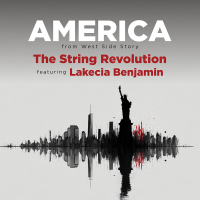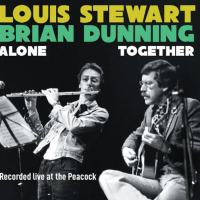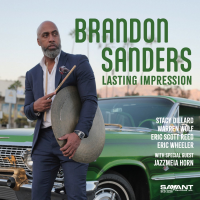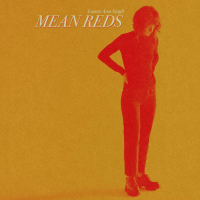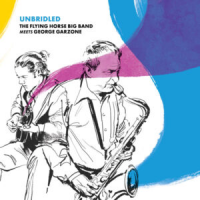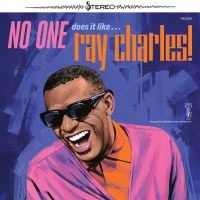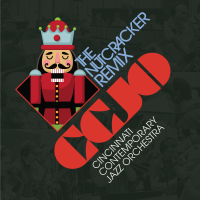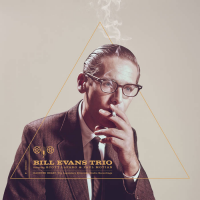Home » Jazz Articles » Album Review » Roland Kirk: Domino
Roland Kirk: Domino
Kirk’s arsenal includes two unusual instruments, the manzello (sort of like a soprano sax) and the stritch (like a mellow alto), in addition to tenor, flute, and the occasional siren whistle, usually to introduce a piano solo. His simultaneous two- and three-horn work led some to dismiss him as a gimmick player, which was absurd, for what’s astonishing about the technique is its sheer musicality in Kirk’s hands. Need to ratchet up the intensity over a pedal point or during a solo? Add another horn or two and you’ve got an instant one-man shout chorus. (Check out his faster-than-usual reading of J.J. Johnson’s "Lament" for a good example of this.) And mind you, this is not mere noisemaking — his note choices, whether unisons or two- and three-part harmonies, make perfect sense.
Indeed, for a musician often thought of as incurably odd and left-of-center, Kirk’s rootedness in tradition couldn’t be clearer on Domino. On tenor he sounds not unlike Sonny Rollins; his flute work surely influenced Thomas Chapin. On the fast minor blues "Rolando" he plays a stritch solo full of exemplary post-bop lines. "E.D.," the last of the original 10 tracks, is a furiously fast reworking of "Tea for Two." At least at this stage, Kirk’s playing was far more inside than Ornette Coleman’s, for instance.
Perhaps this reissue will prompt a reappraisal of Kirk’s importance. As someone who took the tradition seriously and yet created something entirely new from it, he has a great deal to say to today’s like-minded younger generation of players.
Track Listing
Domino, Meeting on Termini's Corner, Time, Lament, A Strich in Time, 3-in-1 Without the Oil, Get Out of Town, Rolando, I Believe in You, E. D., Where Monk and Mingus Live / Let's Call This, Domino - alternative version, I Didn't Know What Time It Was, I Didn't Know What Time It Was, I Didn't Know What Time It Was, Someone to Watch Over Me - breakdown take, Someone to Watch Over Me, Termini's Corner, Termini's Corner, Termini's Corner, Termini's Corner - breakdown take and intercuts, When the Sun Comes Out, When the Sun Comes Out, When the Sun Comes Out, Time Races With Emit
Personnel
Rahsaan Roland Kirk
woodwindsRoland Kirk (tenor saxophone, manzello, stritch, flute, nose flute, siren whistle, voice), Herbie Hancock, Andrew Hill, Wynton Kelly (piano), Vernon Martin (bass), Henry Duncan, Roy Haynes (drums)
Album information
Title: Domino | Year Released: 2001 | Record Label: Verve Music Group
Tags
PREVIOUS / NEXT
Support All About Jazz
 All About Jazz has been a pillar of jazz since 1995, championing it as an art form and, more importantly, supporting the musicians who make it. Our enduring commitment has made "AAJ" one of the most culturally important websites of its kind, read by hundreds of thousands of fans, musicians and industry figures every month.
All About Jazz has been a pillar of jazz since 1995, championing it as an art form and, more importantly, supporting the musicians who make it. Our enduring commitment has made "AAJ" one of the most culturally important websites of its kind, read by hundreds of thousands of fans, musicians and industry figures every month.










